An Interview with John Locke of Lockedown Design & SEO.
I actually follow John Locke of Lockedown Design & SEO on Twitter, and often watch his YouTube videos on SEO (Search Engine Optimization) / marketing.
John’s had an interesting path from his early days to where he is now. It makes for great reading, and if I’m being honest, very inspiring.
So over to questions with John Locke.
What was early life like for you?
I grew up in a smaller town in Northern California. My mom died when I was six, but she was sick most of my life before that. I never really knew her. My dad managed a paint store in the “larger” town nearby (about 15,000 people).
I would hang out in the back storeroom there when school was out during the summer. Most of the adults in my life had problems with alcoholism but for the most part, they were supportive and really tried to help.
I read a lot of books, and I was curious about a lot of stuff. I was an only child and a latchkey kid, so like a lot of kids in the late 70s and 1980s, I had to figure out how to entertain myself.
I did good in school, and got bullied until about seventh or eighth grade, after that it stopped because I started fighting back.
I started learning music when I was fourteen, and that still is a big part of my world. When I was in high school, my family went through a lot of struggles, but we individually came to our own place of peace by the time I was in my early twenties.
How did you get started with WordPress & SEO?
In late 2009, I was working in a Wonder Bread factory in Sacramento. I had some severe repetitive motion injuries that had accumulated (I worked as a baker for various places for about eighteen years up to that point).
People were saying the factory would eventually close (which it did eventually, because the parent company was trying to sell it). The union pension fund was underfunded (and it still is today, due to go insolvent in about five years).
At that point, I knew that I had to make a drastic change in my career, because continuing on in my current path wasn’t going to work out.
So I started taking online classes on web design and web development, and reading books on web design. Learning HTML and CSS in my spare time. After a while, I started building very simple web pages and experimenting with CSS3 (new at the time).
I heard about WordPress and other CMS like Drupal and Joomla. I chose to dive into WordPress first, because that seemed the least intimidating – I didn’t know any PHP at this point.
My first WordPress site were practice sites I would build for friends and family members, just to get repetition down.
I was building themes from blank themes – I think there was one literally called Blank theme, but then I used Starkers. Eventually I switched to using Underscores as a base theme.
In November 2012, the bread plant went on strike, and I was doing web development full time. I have been ever since that day.
I scoured Upwork, various WordPress job boards, and Authentic Jobs for gigs. I still have one client from those days.
The first few years I did a lot of work for smaller agencies on the East Coast. I tried to get a junior web development job here in Sacramento, very briefly, but no one was hiring a forty year old junior dev.
Remote work was completely different though. No one cared that I had teenagers or was older, they just cared that I came through with what I said I would do.
John
The first two agencies I worked for I horribly underpriced my rate. When you’ve worked your whole life as an hourly employee, charging 25 or 30 dollars an hour sounds like a lot.
Really it’s not, because you rarely get a full week of hours. The last agency I did work for, I did 27 sites for them, all custom built from scratch on WordPress.
I left because I wanted to raise my rate (we worked on a flat rate per site), and they balked. It was the best thing that could happen at that point, though it was stressful at the time.
After that, I tried to specialize in e-commerce sites and WooCommerce, and I got a couple of sites, but that direction wasn’t working for me. It was shortly after that I started pushing SEO a little more.
John
It still took about six months for me to push SEO as the main thing ahead of WordPress development. I was ranking number one for “WordPress web design” and “WordPress development” in Sacramento at that point, so I was still getting leads.
The problem was, they were mostly “fix-it” or “rescue” jobs. Like, “We paid another company to build this site, and we’re not happy with it. Can you fix this list of stuff”. Most of those inquiries didn’t have much budget.
Then I pushed SEO front and center.
I had done some SEO for some hobby sites, my own site, and some friends’ sites and had enough success that I felt confident in my skills.
I was very fortunate to get the right clients at the right time after that. I did a great job for those first couple of companies, and I’ve been specializing in SEO ever since.
Tell me more about your business Lockedown Design & SEO.

I mostly focus on SEO for manufacturing and industrial companies. I’ve had clients from four time zones in the US and a couple from overseas.
I also do local SEO for some home services companies (contracting) and some other local businesses in Sacramento.
The big value proposition is being able to build the site, help with content, and do on-page and off-page SEO. Many SEO companies aren’t doing the entire bundle, and it ends up making SEO more difficult.
John
Most of my clients are either a monthly retainer, or we do a time-boxed engagement (3-6 months). I also do intensive SEO audits that give clients a blueprint of everything they need to do to improve SEO for their site and specific keywords, but most end up hiring me to do that list.
What’s it like running your own business?
More difficult than I thought it would be. I’m approaching the eighth year of doing it, and I only feel like I’m getting a handle on it in the last year.
It’s much different than being an employee. There’s a lot of client communication that needs to happen every day, and administrative tasks to keep everything organized.
At the same time, this was the best decision I could have ever made. Not easy, but the work of putting myself out there day after day has paid off.
John
Don’t believe people when they say they have a four hour work day. I don’t know anyone in a regular business with that type of day, and not in digital marketing either. To me it’s worth it.
Though I completely understand that there are times when being an employee is advantageous and preferable (especially if you get comprehensive health care).
What’s a typical day for you at work?
There are certain things that need to get done for certain clients each week, and each month. Each day, I take a chunk out of that work and get it done.
I might focus on 2-3 clients per day. There’s a chart on my wall, right in front of my desk with current client projects, and what needs to be accomplished for them in the current week and current month.
Some days might be development, some may be content creation. Other days may be content optimization, or link building. I also deliver a rankings report to each active client every two weeks.
John
Occasionally, there are priority tasks that get put on top of the stack (for long time retainer clients).
Some prospects want to know what each week in a three month engagement is going to look like (what are you doing week 1, week 2, etc). Oftentimes there are different things going on concurrently.
For example, if we’re relaunching a site, design, development, and content creation might be happening on top of each other.
What does an ideal client sound like to you?
If they have full time employees, or they’ve been around for at least a few years, that means they probably have a budget for marketing and SEO. If they are a one-person business (like a life coach) then I avoid that prospect.
Manufacturing, industrial, and some trade contractors that are already making some money, but want to make more are ideal clients. If they are still trying to figure out how to make money, it’s not going to be a good fit.
There’s a lot more to SEO than saying some magic words and sprinkling some pixie dust, so established businesses are the best fit. I want to make sure it’s a fair and equitable trade for both parties.
John
I noticed you focus more on the manufacturing niche with SEO, why is that? Do you work with other types of business outside of this sector?
I have other clients that aren’t in manufacturing, though that’s not something I necessarily push. I like manufacturing because most manufacturing websites (outside of the Fortune 500 sites) need help.
They also have revenue. So if can help them double their revenue by getting them more qualified leads, then everyone wins.
John
I’ve worked with other types of businesses, and the smaller the business, the more impatient they are and lower their budget is. The lowest stress clients are the ones that are already doing alright with revenue, but they can do even more with some help.
Most manufacturers can make money. Setting up a manufacturing plant takes money, so it’s less of an issue. They just want someone that can help them make even more money by getting them found in organic search.
The SEO landscape changes quite often, how do you keep on top of things?
I don’t read a lot of SEO blogs, though I follow interesting people on Twitter, so I see stuff that might not be at the top of everyone’s mind in that feed.
I look at SEO forums every day to see what people are experiencing in real time, and see what questions they are asking. I follow the Google Webmaster blog and watch a few people on YouTube.
Though I always look at what people say through the lens of what I see happening with my own clients and their competitors. Take everything you hear with a grain of salt, because a lot of “common knowledge” is absolutely false.
If you watch what’s happening with the Search Engine Results Pages over time, you can see what Google favors.
In most cases, the ranking algorithm wants to satisfy the majority of people that are typing in a specific keyword phrase. What they rank on page one for each term is a big clue as to what the algorithm thinks are good results.
SEO can be confusing for some, myself included! Can it sometimes be hard to convey this to clients?
Yes! Many clients have an outdated idea of what SEO is from the turn of the millennium. Some prospects think it’s keyword stuffing, or using tricks.
Some people get their ideas from famous SEO blogs, which can be okay. There’s a lot of BS out there, so it’s difficult to navigate. Unless you’re doing SEO all the time, it’s hard to tell what’s real and what’s a myth.
John
Most prospective SEO clients want to know what we’re going to do to improve their site. Many have been “burned” by cheap SEOs they have hired in the past.
SEO is about improving every aspect of your site and each page, and getting people to the goal they want to accomplish.
In most cases, everything must be upgraded: content, page layout, design, link profile, brand footprint. It’s not as simple as “add the keyword a bunch of times to the page”.
In your opinion, what do most people get wrong with SEO (or forget to do)?
Most people doing SEO for the first time underestimate what needs to be done. Many people who just had a website built, or built it themselves don’t want to hear that the site isn’t good enough, or the layout of key pages needs to be changed.
Design affects SEO! It’s not just about making the site faster, and making content twice as long as the other sites.
John
The other thing people overestimate are little things that should (in my opinion) come after you’ve looked at the content for each page, the design, the link profile.
Focusing on stuff like Schema and site speed is a nice to have. But those things don’t matter if your page isn’t giving people the information they expect to see, or get them to the goal they want to get to.
Also, pay attention to what happens on third party sites. Google doesn’t only look at your site and your GMB profile.
It looks everywhere to see what business category you’re in, what reviews on other sites say, what your profile on Yelp says. All these things matter.
Low hanging fruit is what you should do last, not first.
Do the hard stuff, and you’ll see improvements.
Do you have any SEO tips to share?
If you want to know what to do for a given keyword, look at page one of Google. Click on each result and write down what you see.
- What elements are in each page?
- What phrases appear over and over?
- What topics are being discussed?
- Which questions are being answered?
- Are there even blog posts in the top ten?
You might not be able to rank with a blog post, it may require an e-commerce page instead.
The answers are all right there.
See if the changes you’ve made to that page improve its ranking. My guess is, if you look for patterns for each keyword, you’ll start to see what needs to be done.
You’re very prolific on YouTube and have made untold videos on SEO, marketing and more. How important is YouTube to the growth of your business?
Right now, I seem to be getting a lot of inquiries from YouTube, so it’s something I’m definitely going to keep doing.
I have a few retainer clients that found me on YouTube, so right there are five figures a year from doing videos.
Curiously, most of the people who find me on YouTube are from other parts of the country. The clients on my roster who are local to Sacramento either find me through my own SEO, or they are direct referrals.
Is there a particular video you’ve made that really stands out for you?
There are a ton, but there are two live diagnosis videos I did for local SEO, one for a moving company and one for an orthodontic studio that will give you an insight into what I look for in winning local rankings.
There’s another one called Origin Story that doesn’t have a lot of views, but it’s my story as a web professional so far.
What’s your biggest achievement to date? That one project you worked on and stood back and made you think, yeh this is my unicorn.
I got really lucky in that my first two SEO clients have done extremely well, and both have literally transformed their lives due to SEO.
One is a local business run by a friend. He literally gets multiple leads a day for a high-dollar service he provides. The other is a business that sells physical products.
They’ve made 100x from their initial investment, and it’s allowed them to make some other big moves. Each of those has referred me to multiple other clients. It has shown me that SEO can be literally a life-altering mechanism in the right circumstances.
John
Are there any WordPress products you recommend?
I use a lot of the same plugins on every site: Advanced Custom Fields Pro, Gravity Forms, Custom Post Type UI, Simple Sitemap, Post SMTP. Those are ones I rely on in every build.
The WordPress SEO plugins are all pretty good, and it’s up to you which you want to use. Yoast, RankMath, SEO Framework each get you to pretty much the same spot.
Does anyone in particular stand out in the WordPress product world, someone who’s doing things the right way?
Pippin Williamson and the team at Sandhills Development have always done things right from the start. Some newer WordPress product companies that are run with integrity and putting out great plugins are MediaRon run by Ronald Huereca and forgemedia run by Brett and Brian Jackson.
Switching off completely, how do you relax?
I find time every day to play guitar, and I do karaoke when the world isn’t in pandemic state. I also have a two year old pitbull named Hazel that needs a lot of attention, so I play a lot of tug of war and fetch with her.
What’s on the horizon for you? Any exciting projects you can share with me?
I have some stuff on the back burner, but right now doing YouTube every day and blogging occasionally take up all my free work time.
Tell me 5 things people might not know about you.
- I originally wanted to be a psychologist. I started to go to college for that, but ended up dropping out as a teen.
- I’m adopted, and I’ve never met my birth family. I also never met any of my adoptive family except for my mom and dad.
- Back in the 1980’s, I once tried to beat up Paul Stanley from Kiss at an Ozzy concert because he was hitting on my girlfriend at the time. (He ran away).
- I’ve never been farther east than Missouri. Or farther north than Oregon, or farther south than San Diego. I’m not a big plane traveller.
- I was named after the philosopher that bears my name, as was my dad. My father looked just like the painting you see of the philosopher John Locke, but with shorter hair.
Want to get hold of John?
If you’d like to find out more about Lockedown Design & SEO, read testimonials from clients, and learn more about his services for manufacturing SEO and design, please do take a look.
John Locke is on Twitter, and I’d recommend you follow him for advice and opinions on design and SEO. Want to learn a thing or two about marketing, SEO, and, indeed, WordPress, subscribe to his YouTube channel.
Thank you John
Huge thanks to John for being candid about his past and how his business operates. As I said at the beginning of this interview, it’s inspiring to read about a person’s journey.
Subscribe To My Newsletter
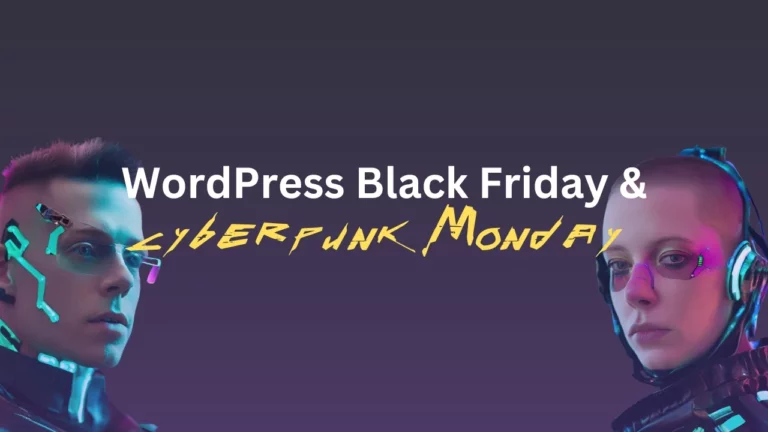
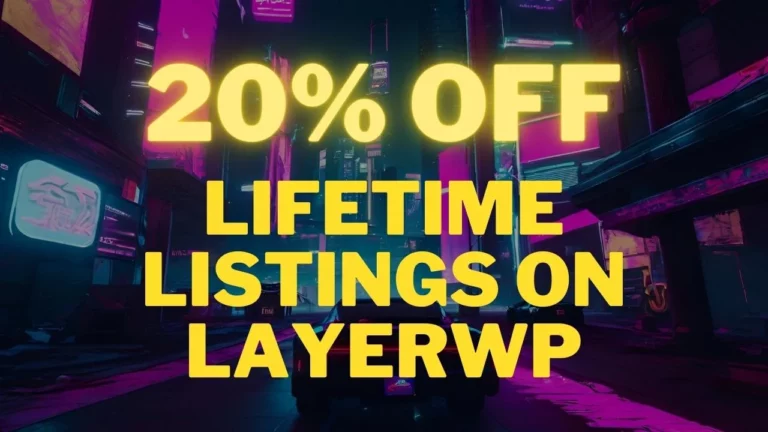

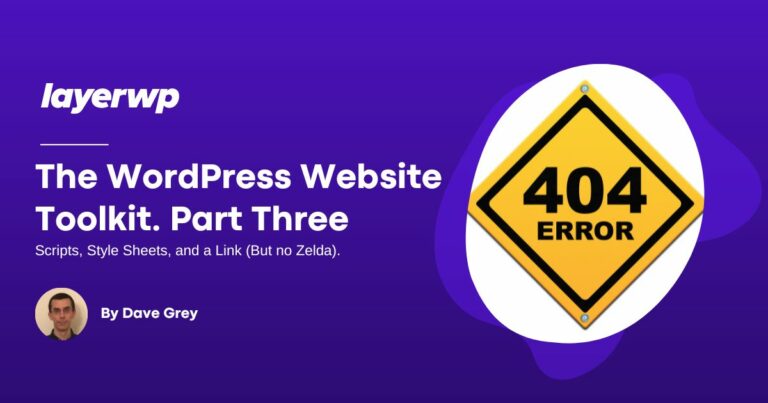
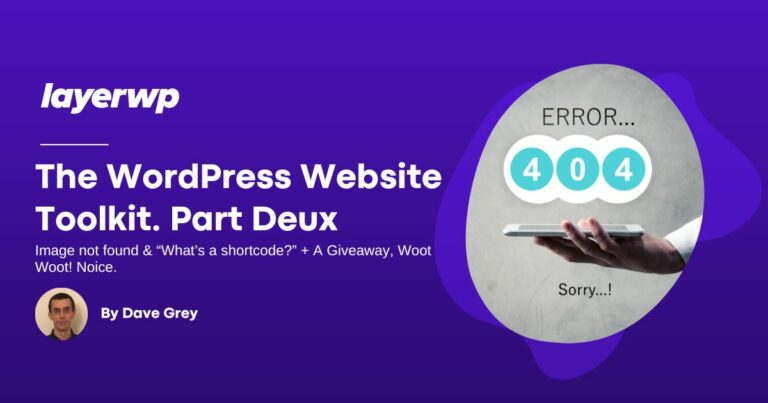
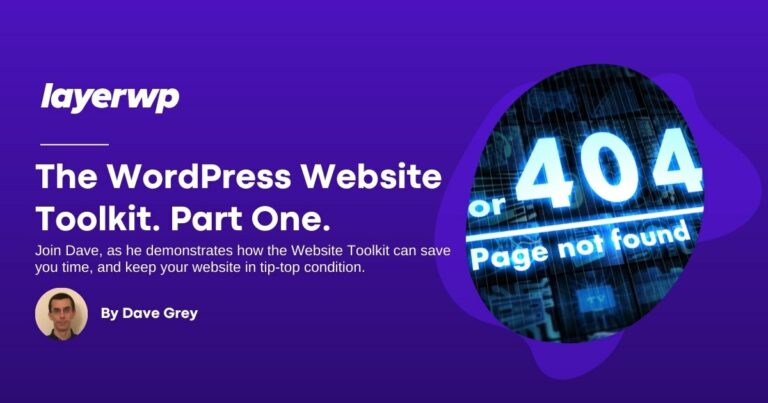
Leave a Reply